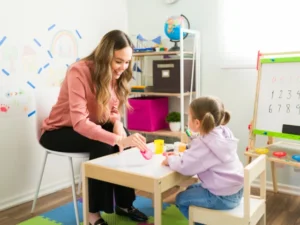 Grief is a universal experience.
Grief is a universal experience.
It’s one of those things we all wish we could avoid, but it inevitably affects every one of us at some point in our lives. Grief is perfectly natural, a deeply felt response to loss, whether it’s the death of a loved one, the end of a significant relationship, or even the loss of a job or cherished dream.
But despite the fact that it’s such a shared experience, grief is also one of the most intensely personal journeys we can face, and it can manifest in many different ways. It’s also an intensely challenging process to navigate alone – which is why therapy can be such an important tool for healing and transformation.
What is Grief?
We all know what it feels like. But when it comes to defining grief, things aren’t always so simple. Broadly speaking, grief is the emotional suffering you feel when something or someone you love is taken away from you. But, while it’s most commonly associated with the death of a loved one, grief can stem from a surprisingly diverse range of loss, including:
- The end of a relationship or marriage.
- Illness or loss of physical health.
- Losing your employment.
- Experiencing a miscarriage.
- Loss of financial stability.
- Retirement.
- The death of a beloved pet.
Each of these experiences – and may others – can trigger a profound emotional response, and it’s important to recognize that there is no “right” way to grieve.
The Stages of Grief
Understanding the stages of grief can help make it a little easier to process the experience. Renowned psychiatrist Elisabeth Kübler-Ross identified five stages of grief:
Denial, typified by disbelief and shock: “This can’t be happening.”
Anger, often expressed as frustration and helplessness: “Why is this happening?”
Bargaining, where we may try to regain control: “If only I had…”
Depression, as we experience deep sadness and withdrawal: “I can’t go on.”
Acceptance, as we gain perspective: “It’s going to be okay.”
It’s important to note that not everyone goes through all these stages, and they don’t necessarily occur in that exact order. Some people may also experience additional stages, like shock or profound feelings of guilt.
When Should You Seek Help?
Grieving is a highly individual process, and there’s no set timeline for healing. However, certain signs may indicate the need for professional help:
- Prolonged Sadness: Persistent feelings of sadness or hopelessness.
- Difficulty Functioning: Trouble performing daily tasks.
- Substance Abuse: Turning to addictive substances or alcohol as a coping mechanism.
- Isolation: Withdrawing from friends and family.
- Intense Anger or Guilt: Wrestling with emotions that are overwhelming and unmanageable – and which can often be self-sabotaging in nature.
Is Grief Counseling Really Effective – or Even Necessary?
In a word – yes.
While grieving is a natural process, it can sometimes become overwhelming.
Here’s another way to look at it. Loss is like a wound – and emotional wounds can affect us just as severely as physical wounds can. Sometimes, wounds heal naturally, but in many cases, having a professional provide the right healing tools, along with care and support, can make a world of difference.
Skilled grief counseling offers you:
- Emotional Support: A safe space to express feelings and release emotions without judgment.
- Understanding your Grieving Process: Insight into the stages of grief and personal grieving patterns.
- Coping Strategies: Practical techniques that help you manage overwhelming emotions more easily and provide you with coping strategies for daily life.
- Connection: You’re helped and encouraged to reduce feelings of isolation by connecting with others who understand your pain and have sincere empathy for your loss.
- Healing and Growth: Learning to move forward while honoring your loss and holding space for treasured memories and experiences.
How Does Grief Counseling Work?
Grief counseling most often involves one-on-one sessions with a therapist trained in grief and loss.
Your first session together will usually take the form of an assessment, so your therapist can thoroughly understand the nature of the loss and your emotional state. Then, your therapist will develop a plan or pathway forward that offers a uniquely tailored approach that addresses your specific needs.
There are several ways of approaching grief therapy, and these can include talk therapy, cognitive-behavioral therapy (CBT), and mindfulness practices. In some cases, this can also be facilitated by a therapist who is a qualified pastoral counselor, providing appropriate spiritual support and perspective.
And, of course, processing grief is a journey – one that is very often much easier and more reassuring with someone to guide you as you heal.
Some Practical Coping Tips for Grief
While professional support is highly recommended and valuable, there are also several self-care strategies you can adopt to help manage grief more easily:
- Remember to acknowledge your feelings and emotions. Be gentle with yourself, and allow yourself space to mourn – because expressing what you feel is a vitally important step in releasing sadness and moving into hope.
- Take care of your physical health. Even though you may not feel like it, try to get regular exercise, eat well, and get enough rest. Emotional stress can be physically debilitating – so it’s important to look after yourself.
- Stay connected to others. It’s natural to withdraw, but friends and family are there for support, and they want to comfort and help you. Let them do that, and be willing to simply accept the grace and kindness they offer.
- Try to engage in activities that bring you joy. Do you have hobbies or interests that give you peace or sanctuary? It’s okay to immerse yourself in those things, because they provide a form of gentle mindfulness that can also prompt reflection and healing.
And of course, seek professional help as well. Don’t hesitate to reach out to a grief counselor if you need to.
We’re Here to Help You
Grief is a profound and often life-changing experience, but you don’t have to go through it alone. Grief counseling is one of the very best ways to help you navigate your emotions and find a path toward healing.
And remember – seeking help isn’t a sign of weakness! It’s a vitally important step toward regaining control and finding peace.
If you or someone you know is struggling with grief, consider reaching out, and contact us today.
At My Therapy ConnectionTM, our goal is to provide the very best help and support, no matter what you might be going through. Simply reach out – and get the help you need and deserve.




